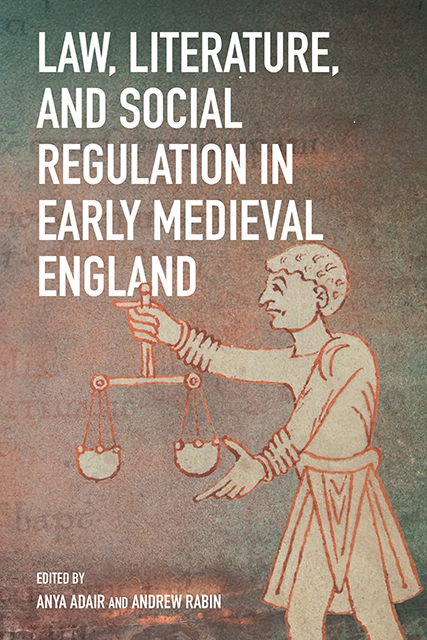1 - The Alfredian Prose Psalms and a Legal English Identity
Published online by Cambridge University Press: 10 June 2023
Summary
The Old English prose translation of the first fifty Psalms survives only in the manuscript Paris, Bibliothèque nationale de France, MS fonds latin 8824, known as the Paris Psalter. The text has been attributed to the translation project that appears to have been foundational to King Alfred's larger educational agenda to ensure that the nobility were able to read English, that clergy knew Latin, and that civil and ecclesiastical office-holders considered themselves to be doing divine service in upholding law and suppressing sin. However, the prose Psalms have received limited scholarly attention, often being eclipsed by the poetic translation of the Psalms. What scholarship exists has been focused largely on issues of vocabulary and translation, on manuscript studies, or on the relationship of the Psalms in English to the larger place of the Psalms and the liturgy in early England. Yet the prose Psalms deserve attention for how they work with Alfred's laws to participate in establishing a vocabulary that connects English law in the reign of Alfred to Scripture, and for how they offer a model ideology of Christian English kingship.
Bringing together the only two Alfredian texts that directly translate Scripture and that are roughly contemporary, I argue that the prose Psalms and the prologue to Alfred's laws are key texts in Alfred's educational project. These two texts merit discussion together not only because they both make use of biblical translation, but also because reading them in tandem sheds light on Alfred's educational agenda. I explore the ways that they use Old Testament kings as models of kingship and textual authority, the common structural logic of the introductions to the Psalms and the prologue to the laws, and similarities of vocabulary choice in the two texts’ translations from Latin to English. On this basis, I demonstrate their shared concerns with law, judges, identification with the king, and a sense of belonging to a common people. Moreover, the two texts would have functioned as guides for English nobles who would have been the beneficiaries of Alfred's educational agenda in how to think about their own roles as leaders in the face of foreign invasion and as judges under West Saxon hegemony.
Alfred's preface to the Old English translation of Gregory the Great's Pastoral Care has commonly been read as a statement of the guiding concerns and principles of Alfred's educational program and it offers a framework for the consideration of Alfredian texts.
- Type
- Chapter
- Information
- Publisher: Boydell & BrewerPrint publication year: 2023



